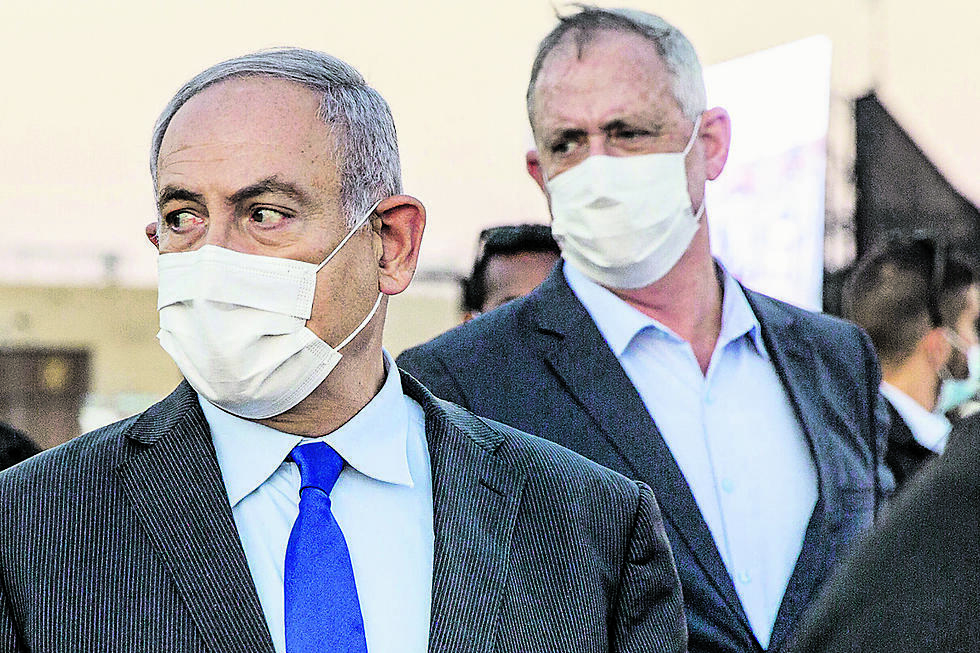Getting your Trinity Audio player ready...
Defense Minister Benny Gantz on Tuesday stopped Prime Minister Benjamin Netanyahu from holding a cabinet meeting on extending the coronavirus lockdown until the Knesset enacts a bill to increase fines for violations of health regulations during the pandemic.
If ministers fail to extend the restrictions, the closure will be lifted next Sunday even though Israel's infection rate is still high, with a positivity rate on Monday of 10%.
Gantz warned Monday that he would block any moves on the pandemic until Netanyahu allowed the bill to pass its final Knesset vote.
The legislation has already passed its first Knesset reading, with "no" votes from Haredi and Arab MKs, who represent the sectors with the highest infection rates and poorest record on implementing virus mitigation regulations.
The bill was then sent to the Knesset Constitution, Law and Justice Committee, which is headed by MK Yakov Asher of the ultra-Orthodox United Torah Judaism party. Asher was expected to stall the bill's return to the plenum for a final reading.
3 View gallery


A policeman enforces coronavirus lockdown restrictions during Israel's third closure
(Photo: Police Spokesperson)
"Likud must stop all their tricks and delay tactics and pass the law doubling fines and must enforce lockdown restrictions in Haredi communities as it does in the rest of the country," Gantz said.
Secular Israelis have long complained that enforcement in ultra-Orthodox areas is lax and accused the authorities of turning a blind eye to Haredi violations that would lead to fines in other areas.
Haredi rioters, outraged by efforts to close Haredi synagogues and schools that were open illicitly during lockdown, have clashed violently with police in ultra-Orthodox areas across Israel.
On Sunday, a Haredi mob attacked and torched a public bus in Bnei Brak, causing the driver and passengers to flee for their lives.
The cabinet in November approved increasing fines for illegally opening schools and holding crowded events from NIS 5,000 (approx. $1,500) to NIS 10,000 in hopes of dissuading primarily ultra-Orthodox academic institutions from opening in violation of health regulations.
3 View gallery


Haredi protesters demonstrating against police actions to enforce coronavirus restrictions on Sunday in Bnei Brak
However, Netanyahu, who formed his government with the support of the ultra-Orthodox parties opposed to the move, delayed legislation until Monday.
Israel on Monday night, closed Ben-Gurion International Airport - its primary port of entry - to commercial flights for at least six days. The move came due to concerns that the new variants of coronavirus were being brought into the country and spreading rapidly among the population.


